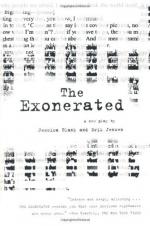|
This section contains 1,208 words (approx. 4 pages at 400 words per page) |

|
Dyer holds a Ph.D. in English literature and has published extensively on literature, film, and television. He is also a freelance university teacher, writer, and educational consultant. In the following essay, he analyzes The Exonerated in terms of philosopher Michel Foucault's discussion of imprisonment and capital punishment in Discipline and Punish: The Birth of the Prison (1975).
In his seminal study Discipline and Punish: The Birth of the Prison (1975), Michel Foucault discusses the transition within Western culture from what he describes as a social model of punishment toward a more subtle, and ultimately more powerful, model of discipline. In a culture shaped by a philosophy of punishment, Foucault argues, those individuals found guilty of crimes were subject to very public penalties, ranging from floggings through the spectacle of public execution by hanging or beheading.
Within the later, ostensibly more civil model, the criminal's body is kept whole...
|
This section contains 1,208 words (approx. 4 pages at 400 words per page) |

|




